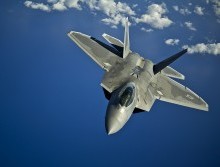If you enjoy playing with dominoes, you know that a carefully laid out pattern of the toys can make quite an impressive display once the first one is knocked over. One after another, dominoes fall at racing speed. Similarly, if you’re a history buff, you may recall that World War I began when a random member of European royalty was killed. Like dominoes, one incident quickly led to another that started the largest war the world had ever seen.
The civil war in Syria has been threatening to spread to other countries for months now. But some important dominoes are tottering and others are being set up. The Syrian conflict is on the verge of spinning out of control, and it’s mostly the fault of two Syrian allies.
Syria has long had few but powerful allies. Russia, Iran, North Korea and the terror group Hezbollah from Lebanon. It’s quite a list.
Meanwhile, the list of nations that oppose the Syrian regime is equally impressive: the European states—especially the UK and France—the United States, Israel, Turkey, Jordan, and Saudi Arabia.
But it’s Russia and Hezbollah that are threatening to escalate things big time.
Russia and the US were content to fight indirectly in Syria for a while. Russia opposed American and European diplomacy against Syria in the United Nations, and provided some weapons to Syria. Meanwhile, the US reportedly sent “non-lethal” supplies to the Syrian rebels. Other nations chose to do more, while Israel watched warily.
But recently Hezbollah has reportedly sent more and more fighters into Syria, and Syria is reported to have tried to send advanced weapons to Hezbollah. Since Hezbollah is an archenemy of Israel, the Israelis have reportedly bombed the weapons inside Syria to prevent them from reaching Hezbollah.
That’s strike one—all thanks to Syria and Hezbollah escalating an already tense situation.
Next, Hezbollah’s involvement has led to more and more conflict inside Lebanon. Gunfights have even broken out as Lebanese take sides in the debate on whether or not Hezbollah should fight in someone else’s country. It’s got Lebanon on edge.
Strike two.
The third strike is getting closer and closer to coming to fruition. Reports, buy 1000 viagra rumors and questions surrounding advanced Russian weapons raise fears that Russia could give the Syrian regime a powerful air defense system. This could threaten Israel’s ability to protect itself and it could prevent the West from setting up a no-fly zone over Syria, if they ever choose to do so.
Ron Ben-Yishai, a columnist writing for the Israeli news website Ynet, wrote a headline last month asking if Israel will end up destroying Russian missiles. Such a scenario is a lot scarier than it may sound.
What happens next? A conflict between Israel and Russia is far-fetched, but serious tensions could emerge. It really depends on how much Russia wants to support it’s long-time ally Syria.
Could it lead to further arming of Syria with even more dangerous weapons? Could it lead to sanctions of Israel by Russia, or Russia intentionally sending advanced air defense systems to Iran or other Middle East bad guys in retaliation?
And Hezbollah, how far are they willing to go? Will they risk launching a real war between themselves, Lebanon and the Syrian rebels?
Will Syria end up dragging Israel into the conflict for real?
In short, the dominoes are tottering. Major Middle East war, global tensions, rising oil prices and terrorists acquiring advanced weapons in the chaos are all on the table.
The US and Europe might be best advised to escalate things as quickly as possible to actually prevent a broader fight. Establish a no-fly zone now, before Russia sets up its air defense system. Dare the Russians to pick a fight with American jets.
Europe should label Hezbollah a terrorist group, freeze their funds and blacklist all their front companies. Put a real financial burden on them and try to squeeze them out of the Syrian war.
Only by showing that the West means business can one prevent the conflict from becoming even more costly. It’s time to put our own dominoes on the table and redirect the collapsing pattern away from a mini-World War.
Call or write your government representative—Congressman, Senator, Parliament member—and tell them it’s time to do more. A journey of a thousand miles does depend on just one step. But sometimes that step needs to be a real leap forward.
(By Joshua Spurlock, www.themideastupdate.com, June 10, 2013)

